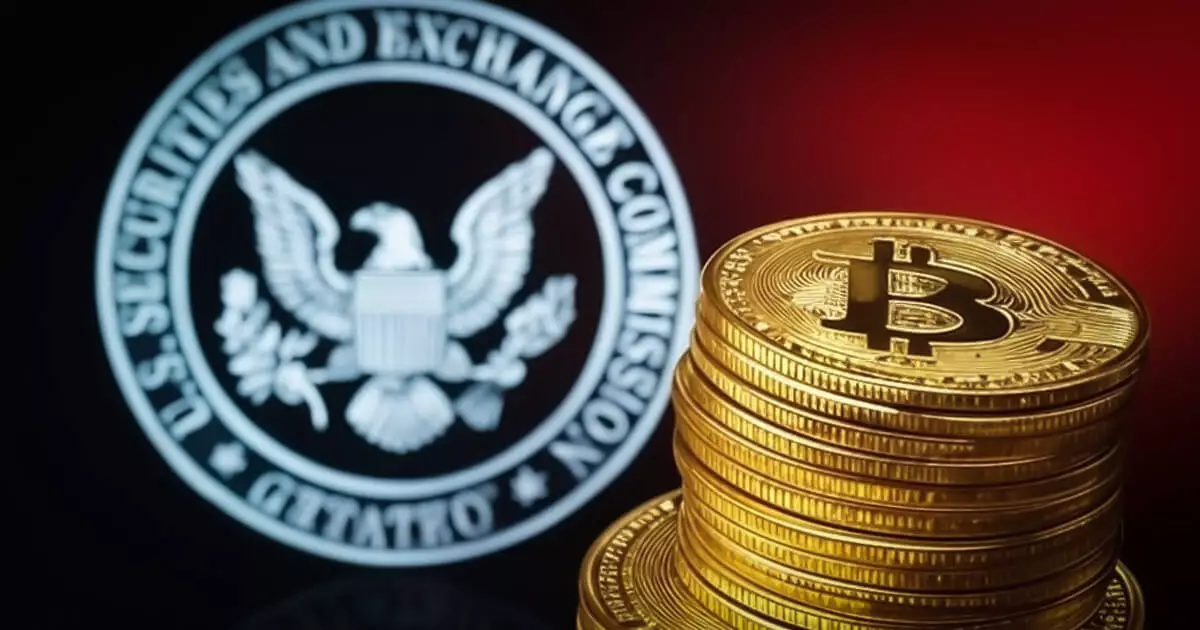In a significant move aimed at shaping the regulatory landscape for cryptocurrencies and blockchain technology, the U.S. Securities and Exchange Commission (SEC) announced the establishment of a dedicated crypto task force on January 21. This initiative stands as a crucial step toward addressing the complexities and uncertainties that have increasingly defined the cryptocurrency space. Spearheaded by Commissioner Hester Peirce, popularly known as “Crypto Mom,” this task force seeks to foster innovation while ensuring investor protection and market integrity.
Commissioner Peirce, alongside Acting Chairman Mark Uyeda, will lead this multifaceted task force, highlighting the SEC’s commitment to creating a robust regulatory framework tailored to the unique characteristics of cryptocurrencies. Joining them are Richard Gabbert, who will act as the Chief of Staff, and Taylor Asher, serving as Chief Policy Advisor. Such leadership denotes a combined wealth of knowledge in perceptions regarding the cryptocurrency landscape, taking note of its technological advancements and growing popularity among investors.
This critical team strives to shift the SEC’s regulatory paradigm from a historical focus on enforcement to a proactive approach built on clarity and collaboration. By relying less on reactive enforcement actions that have often sparked confusion and frustrated innovation, the SEC aims to provide clearer guidelines that actors in the crypto market can understand and abide by.
The primary goal of this newly formed task force is to establish a comprehensive and clearly defined regulatory environment for crypto assets. This includes casting a spotlight on crucial areas such as registration processes, compliance issues, and necessary disclosures that prioritize transparency for both investors and market participants. Historically, the SEC’s enforcement strategies have faced criticism for being inconsistent and often punitive, creating a regulatory atmosphere viewed as antagonistic to budding innovations in the financial space.
Additionally, the SEC’s promise to strategically direct enforcement resources toward clear violations marks a pivotal shift in how they will operate. This approach should provide clarity for those operating in the crypto sphere, encouraging compliance rather than fostering a culture of fear and uncertainty.
A standout element of the task force’s mission is the emphasis on collaboration across government entities. Acting Chairman Uyeda expressed a commitment to work closely with agencies like the Commodity Futures Trading Commission (CFTC) as well as state and international counterparts. This cooperative model is essential for ensuring that U.S. regulations do not operate in a bubble, but instead align with emerging global standards that are crucial for a rapidly progressing industry like cryptocurrency.
This broader approach underscores the recognition that collaborative roles among different regulatory bodies could effectively address the unique challenges presented by the cryptocurrency industry. Such joint efforts are likely to streamline regulations and reduce bureaucratic inefficiencies, which have previously complicated compliance for many crypto entities.
Furthermore, the task force intends to bring in stakeholders from various sectors—including investors, industry participants, and academia—to ensure diverse perspectives guide its strategic development. As Commissioner Peirce herself noted, the task force’s effectiveness will hinge on extensive stakeholder engagement, alluding to the notion that inclusivity brings better optimization of a regulatory framework that resonates with real-time market practices.
In recent proclamations, both Peirce and Uyeda have suggested that agile regulatory frameworks are vital for propelling the United States forward as a leader in the cryptocurrency domain. Their proactive engagement sets a promising foundation for a more dynamic regulatory environment.
Interestingly, while efforts from the SEC are emerging, the political backdrop remains an area of scrutiny. Although President Donald Trump did not officially prioritize cryptocurrency in his public addresses, recent nominations of pro-crypto figures could signal a supportive stance toward a more favorable environment for digital assets. The appointment of Paul Atkins as the potential SEC chair, along with David Sacks in a dedicated crypto czar role, highlights a turning tide in governmental attitudes toward cryptocurrencies.
Overall, the SEC’s establishment of a dedicated crypto task force, led by influential minds in the space, heralds a new era of regulatory foresight. If successful, this initiative could lay the groundwork for a vibrant landscape where innovation flourishes alongside robust investor protections and collaborative governance. Ultimately, the true success of this endeavor will depend on its execution and the ongoing dialogue it fosters among all stakeholders involved in the ever-evolving world of cryptocurrency.


Leave a Reply